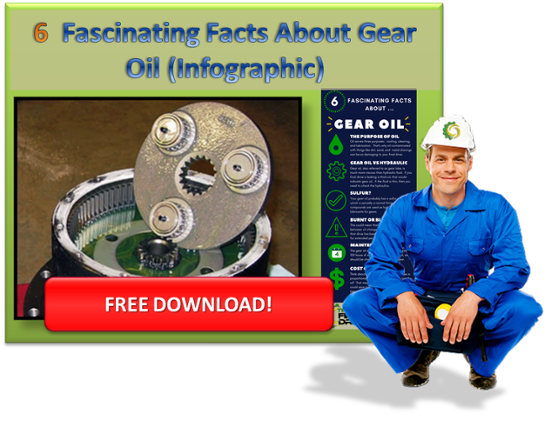We've seen far too many final drives damaged or outright ruined because of poor maintenance. We'd like to take this opportunity to provide you with some really good reasons why checking and changing your gear oil needs to be a part of your regular maintenance.
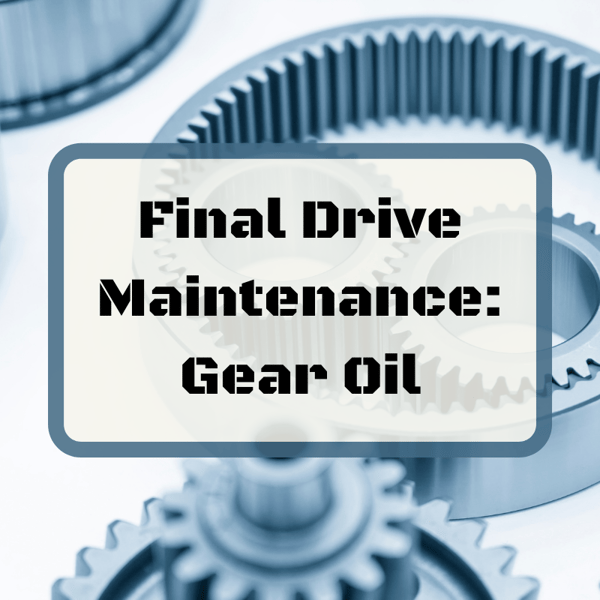
Here are a few other blog posts you might be interested in ...
- Revisiting the Topic of Gear Oil
- Planetary Gears and Final Drive Motors
- How to Troubleshoot Gear Oil Problems
Maintaining Your Compact Equipment
Final drive motors often seem to be a forgotten part of compact equipment, even though they are responsible for providing the necessary torque to move heavy loads and navigate across difficult terrains. When they stop, your work stops. Furthermore, if you keep using them when maintenance is overdue or parts are wearing out, you risk totaling your final drive -- and that includes problems resulting from not keeping an eye on your gear oil.
Final Drive Motor Gear Oil
The gear hub of your final drive motor contains the planetary gears that multiply the torque from the hydraulic motor. Because there is no hydraulic fluid in the gear hub, gear oil is necessary for lubrication, protecting key surfaces (e.g., gear teeth, bearings), and dissipating the heat that builds up. The gear hub requires maintenance to ensure that the gear oil can does its job: checking the gear oil levels and replacing the gear oil.
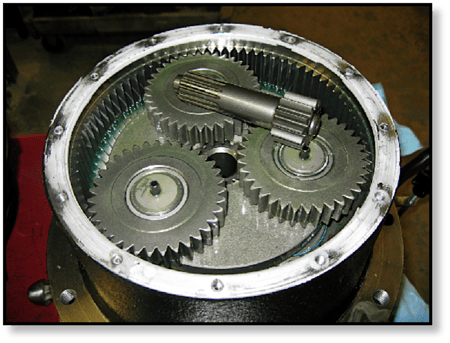
Running Without Enough Gear Oil
If the gear oil runs low in your final drive motor, then not all of your gears, bearings, and shafts are going to be protected by it. Friction will be higher, and parts are going to heat up more than usual. Surface damage will start developing that can generate abrasive contamination that leads to even more damage. That's why you need to check the gear oil levels regularly.
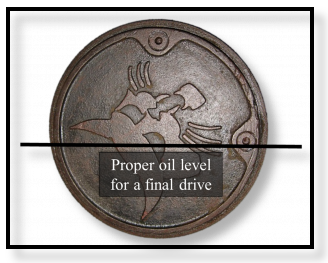
If the gear oil levels are low, they can easily be topped off with the correct type of oil. However, if the levels are consistently running low then you may have a leaking seal.
Leaking Oil Seal
If the gear oil level in your final drive motor runs low all the time or suddenly drops significantly, then you likely have a worn out or damaged oil seal that is allowing the gear oil to escape. While you can top off the gear oil levels to temporarily address the problem, you should not ignore it. If gear oil can escape, then abrasive contaminants like sand, dirt, grit, etc. can get inside the gear hub. That type of contamination can result in serious damage to the gear teeth, shaft, and bearings, reducing their useful life.
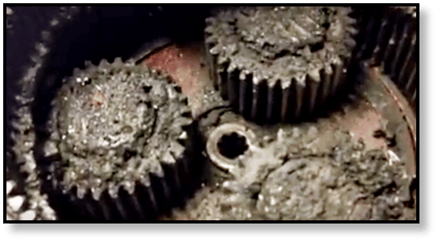
Aging Gear Oil
And there comes a time when gear oil needs to be changed. Gear oil isn't meant to last forever: over time (and when exposed to excessive heat) it will begin to break down chemically. This is referred to as aging, and when the gear oil begins to age it won't be able to do its job as a lubricant. It can actually develop into a nasty, smelly sludge with a pudding-like consistency.
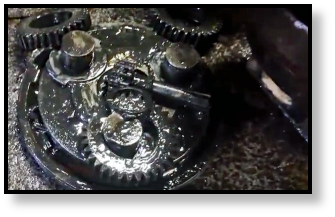
Conclusion
We recommend that you check the gear oil level about once every 100 hours of operation, and change the oil out at least once a year. Remember that lubrication is an investment in the life and value of your equipment, and that applies to your final drive motors are well. And if you'd like to learn more about taking good care of your planetary, check out this blog post: The Effects of Gear Oil Contamination on a Final Drive Planetary: A Comprehensive Guide

